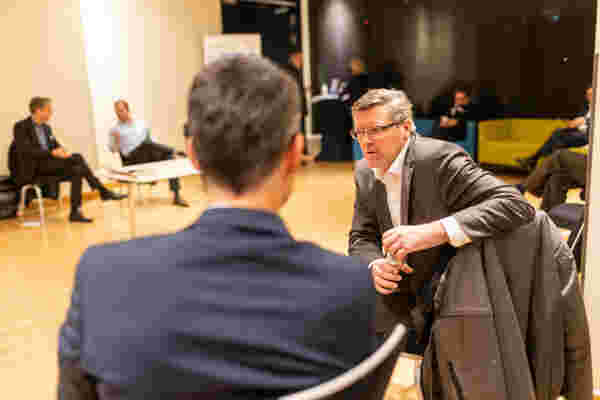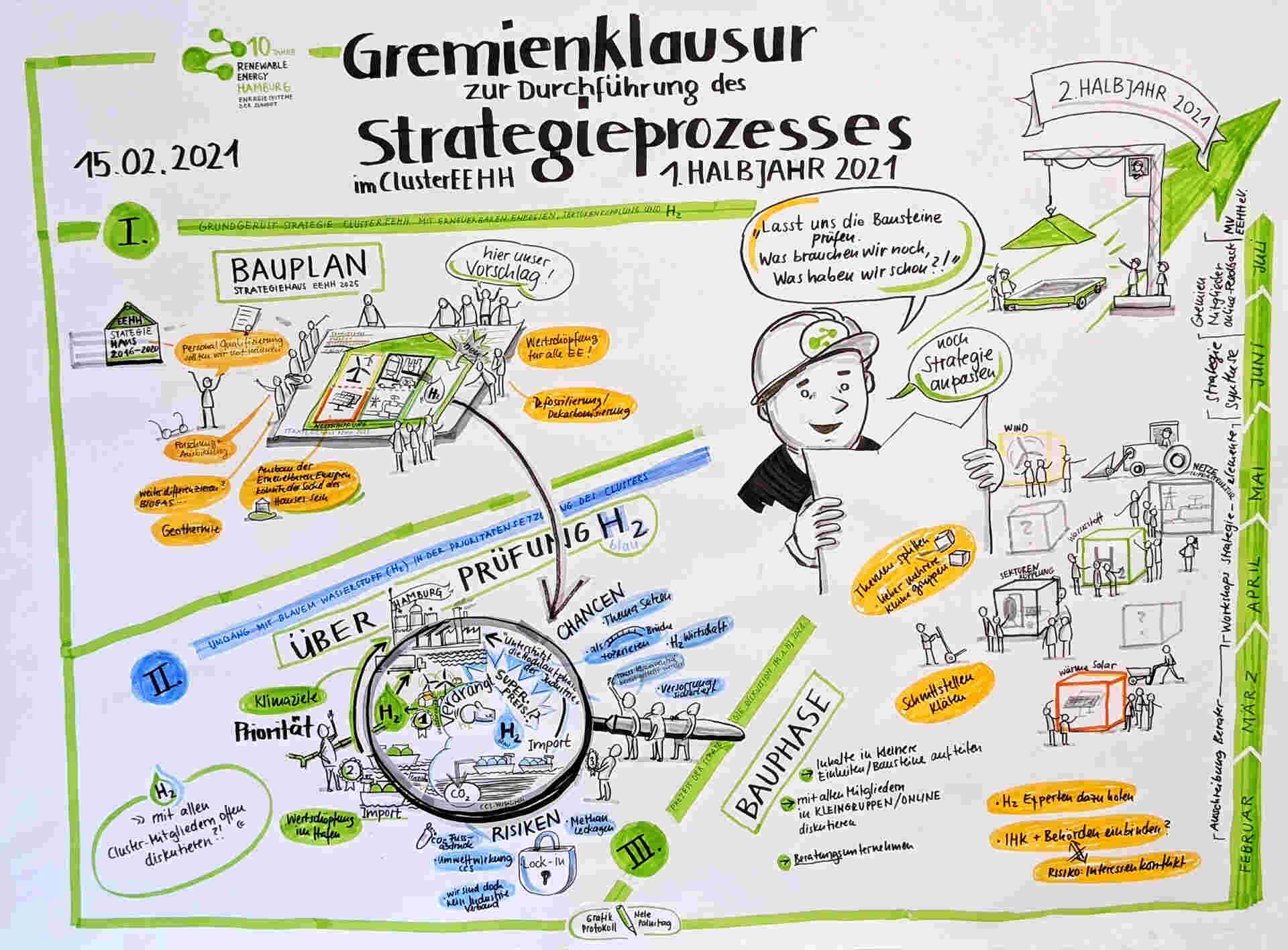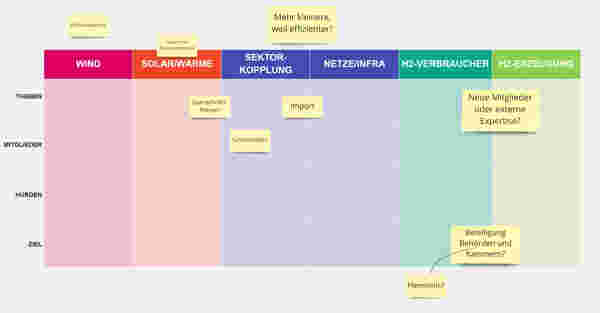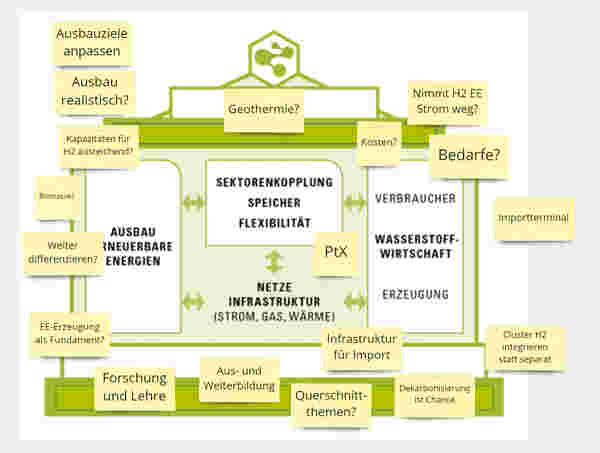STRATEGY
Graphical minutes of the committee meeting
Container for the scroll indicator
(Will be hidden in the published article)Back in 2015, the Renewable Energy Hamburg Cluster Agency developed its 2020 strategy together with its members, which defined its new priorities. Ever since the cluster was established, the electricity sector and wind power have been its main priorities; new activities have since been added, namely digitalisation, solar power, heating and above all sector coupling. In this respect, Renewable Energy Hamburg as a cluster has been subject to the same trends that have been observed throughout the energy industry due to the progressive ‘greening’ of the entire energy supply. What is important, however, is that the EEHH2020 strategy had already anticipated this development for the cluster and important strategic steps could therefore be taken at an early stage.
Analysis and further development of the cluster strategy were due in 2021 – with a slight delay as result of the pandemic. The Renewable Energy Hamburg Cluster Agency’s new priority, ‘hydrogen economy’, also required a new sub-strategy. Its previous priorities of renewable energies and heating, as well as sector coupling, needed to be continued on the one hand and completely redeveloped on the other.
Pinnboard process and strategy house
Due to the pandemic, many strategic development methods and tools were completely – or partially – unavailable, as many face-to-face activities were cancelled. Back in winter 2020/2021, the Renewable Energy Hamburg committees had already decided to define the future strategic direction and use this as the framework for a completely digital strategic process – with the intense involvement of its members. A major experiment that we believe has been extremely successful. Participants used twelve virtual expert workshops to develop the details of individual parts of the strategy, based on the strategic direction. More than 100 people were involved in this strategic process. We would like to take this opportunity to thank them for their expertise!
The resulting ‘EEHH2025’ strategy is due to be presented in early 2022. It is based on the continued systematic communication of the economic mainstay of renewable energies in the Hamburg Metropolitan Region. It also includes using the systematic expansion of renewable energies in northern Germany to facilitate the market ramp-up of the hydrogen economy, which will result in the decarbonisation of major metal and chemical sites in the region. We have learned a lot about digital decision-making processes and are pleased to have developed strategic guidelines for the next five years!



